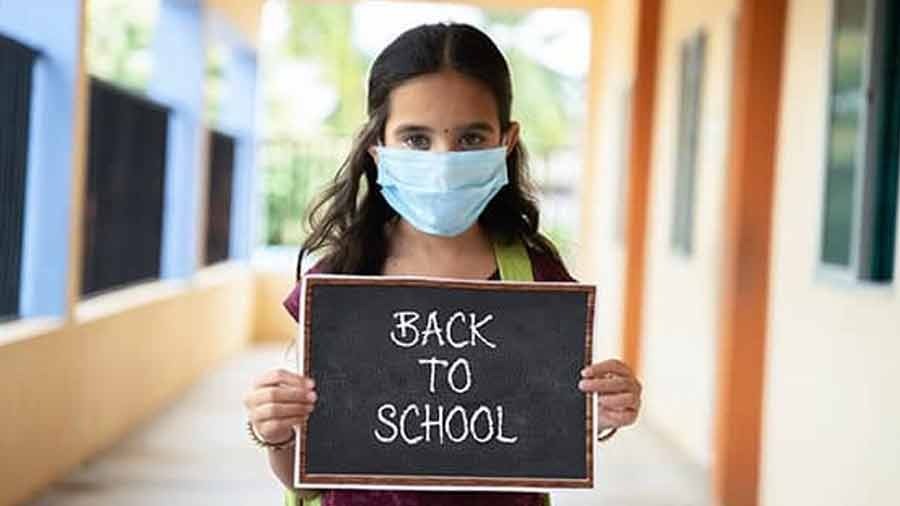Many children have had their childhood scarred by death in the family or financial stress and anxiety about the disease and are not their ‘usual self’ on their return to school, several teachers have reported.
Mental health experts said the situation demanded teachers to be “more sensitive towards their students” rather than take a hard line disciplinarian approach.
Teachers may have to reorient themselves and be much more accessible, they said.
Several schools are conducting orientation programmes for teachers and have told them to be on the watch for ‘red flags’ because those who are ‘emotionally fragile’ might not show it on the outside.
Some institutions have approached psychiatrists to guide them on how to make the comeback ‘easy and gentle’ for the children.
The school counsellor’s role will be important but psychiatrists The Telegraph spoke to said the subject teachers have to be equally accessible to the students.
“At times, students feel they are marked by their friends when they are going to a counsellor or a designated teacher. They should be able to approach others also with their concerns,” said psychiatrist Sanjay Garg.
“Schools can keep boxes where children can drop anonymous letters. Those concerns should be addressed later, during assembly or in classrooms,” he added.
Psychiatrists also suggested that schools should offer “more leeways” to children.
Memories of the pre-pandemic classroom can also be a traumatic for a section of students who had the shield of anonymity during online classes in the last two years, several teachers have told The Telegraph in conversations since in-person classes resumed.
Schools had been closed since March 2020 and classes were being held online as a precaution against Covid. Schools reopened for in-person classes in February this year.
A large section of children are now shy, nervous or evasive in class, said teachers.
School counselors, teachers and doctors said periods could be shorter.
Children could be given frequent breaks, a doctor suggested.
Students, if required, should be allowed to take a stroll on the campus or go out to the playground.
School heads agreed that teachers would now have the additional responsibility of drawing a child out and giving them the opportunity and space to speak up.
“Teachers have to be cognizant of the fact that children only learn when they are happy. If you put a child in a position of stress, they may conform, but not learn,” said Tina Servaia, the principal of the senior section at Calcutta International School.
Amita Prasad, the director of Indus Valley World, said she had asked teachers “to be more understanding towards submission of assignments or projects”.
Some schools said they were planning an assessment schedule that would test the students chapter-wise instead of giving them large portions to cover.
